Significant moments within the Townsville City Council chamber
Significant moments included tensions over the choosing of the CEO, a restructure of travel allowances, and the nomination within advisory groups and boards.
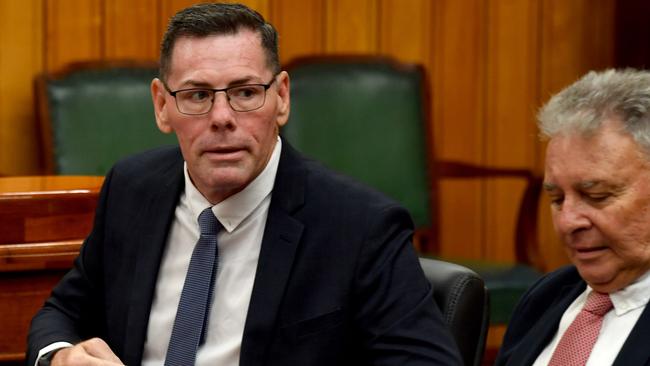
News
Don't miss out on the headlines from News. Followed categories will be added to My News.
The resignation of Prins Ralston overshadowed the agenda of the first ordinary Townsville City Council meeting chaired by Mayor Troy Thompson.
Months of business items were stacking due to caretaker mode and the local government election in March, while an annual budget is looming.
Already the council has restructured to meet twice a month and a special meeting is expected to be held next week to further discuss the appointment of the next chief executive.
Mr Thompson has always said he wanted his councillors to discuss and aerate their ideas as individuals, and this first meeting shows he has already developed such a culture.
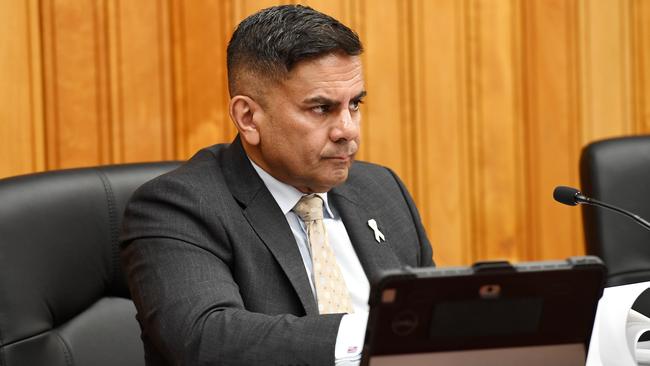
“We’ve done pretty well I think,” Mr Thompson said at the conclusion of the meeting.
“Lots to learn.”
1. Suzy Batkovic goes guns blazing
The council meeting started with a bang as Mr Thompson addressed the resignation of Dr Ralston effective from May 10 and urged that councillors give him the authority to choose the interim chief executive.
Mr Thompson’s reasoning for this was to hasten the decision making process, as Dr Ralston will leave before the next ordinary meeting to be held May 15.
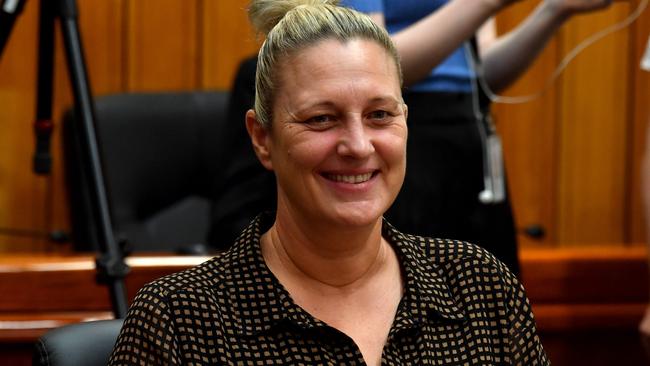
He would be informed by consultancy Peak Services to make his decision.
“That is now taking course and there is a cost per day while that comes in … this is just the preliminary until we get a full time CEO,” Mr Thompson said.
The interim chief executive would assist with the transition for three to six months while the new permanent chief executive was decided on.
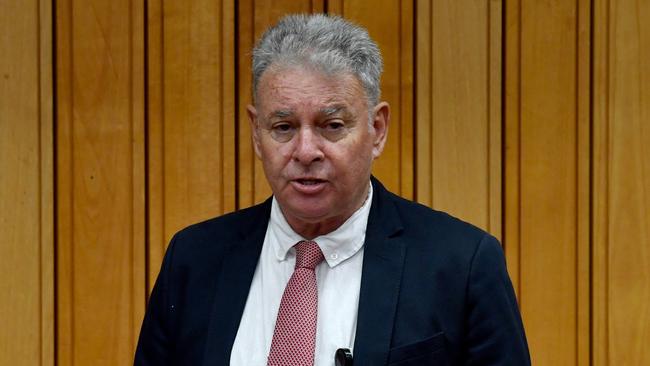
But councillors headed by Suzy Batkovic were distrustful of the process and believed it too important to be determined by one person.
“It doesn’t matter whether it’s an interim for three months, six years, four years, it’s a crucial appointment for the community, for this council” Ms Batkovic said.
Councillors voted against the mayor’s proposal, even those who backed his secret ballot to determine the deputy mayor, with the exception of his deputy Paul Jacob, who said “we are being a little bit pedantic” scrutinising the short-term CEO process.
Ann-Maree Greaney said “all the people sitting around this table were elected to be pedantic and to be thorough and to make these decisions.”
Ms Greaney and new councillor Andrew Robinson were concerned delegating power to the mayor to make the appointment could set precedence.
2. Rehbein’s mystery selection
With the Mayor’s acting chief executive proposal defeated, he focused on the future of the permanent role.
Under his initial proposal a selection panel would include himself, the deputy mayor, Kurt Rehbein, and the consultancy firm McArthur.
Mr Thompson said the firm suggested Mr Rehbein as an option and when other councillors questioned this, the mayor said “they know our council very well.”
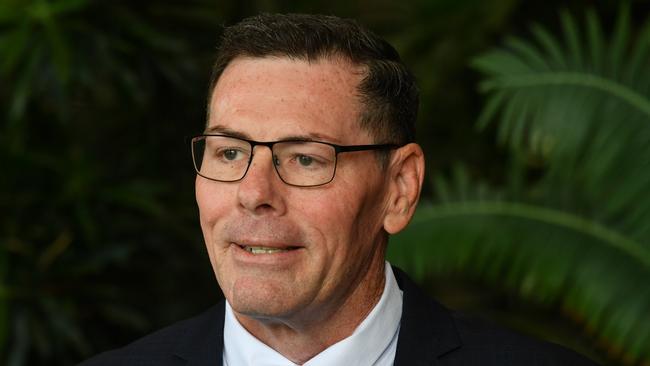
Mr Thompson said the panel would process an already vetted list of candidates and choose the most suitable three options to be brought before the council to vote on.
Mr Thompson’s ideal qualifications for the CEO would be extensive local government CEO experience, demonstrated financial management experience, and “a proven track record in transforming the organisational culture”.
He said there would be “other criteria as determined by the chief executive officer recruitment panel”.
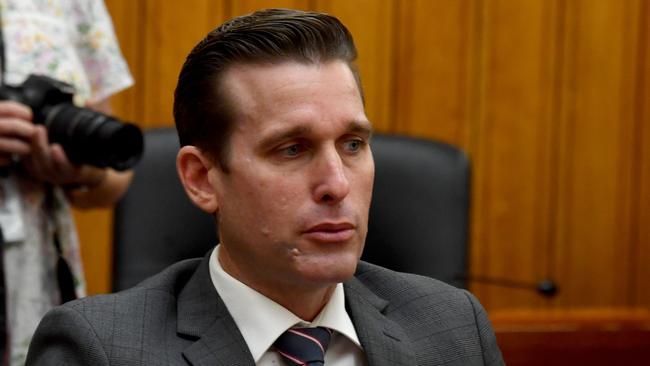
“I’m the one whose giving directives to the CEO and obviously speaking to them daily, so I don’t think my position is in question as far as how we communicate about that,” Mr Thompson said.
“I work very closely with the CEO so I have to have that relationship first and foremost.”
Mr Thompson said the panel was needed because it would be time consuming if all candidates had to decide between a possible 90 candidates.
Cr Batkovic said, “If that’s what we have to do to get it right then I’m okay with that.”
Mr Thompson responded, “Yeah, I’m not, because we haven’t got the time to do that, because we want to move forward with a new strategic plan, a new operational plan, the budget, we might want to review that.”
Ms Greaney backed Ms Batkovic and said, “it goes to that pedantic nature, if it takes 90 applicants it takes 90 applicants.”
“The applicants will be fit for purpose, when you see the job description you’ll understand they’ll be fit for purpose,” Mr Thompson said.
Ms Greaney said, “I have seen the job description of the CEO.”
Mr Rehbein said his inclusion on the suggested panel was “the first I heard about it” and that he would prefer the candidates to be voted on.
After a 15 minute intermission in which the proposal was put to writing, the council agreed to postpone the decision until a special meeting was held.
3. Restructure of travel expenses
Councillors agreed to restructure their travel expenses, on the grounds it would reduce the red-tape for staff and save ratepayers’ money.
Even though divisions are different geographic sizes councillors will all receive a travel allowance of $24,500 annually, but to be paid in weekly instalments, and they then would be responsible for their own transportation, fuel, and maintenance.
The mayor would receive $27,500 a year.
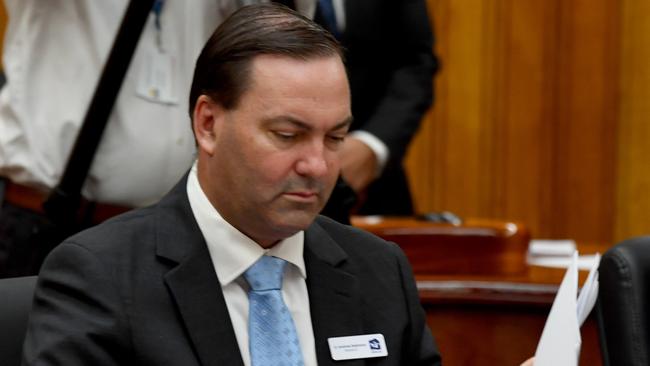
Previously councillors would use council vehicles and use a logbook, but legal counsel executive Tony Bligh said the restructure, also used by Ipswich City Council and the State Government, was more effective, although councillors would not be required to log their costs.
The former processes was “simply costing a fortune” as there was a lack of clarity with staff dedicated to examining logbooks and determining distances.
“It’s less than a Member of Parliament in the smallest electorate so there’s sense for it, and we’re all aware of the increasing costs of vehicles,” Mr Bligh said.
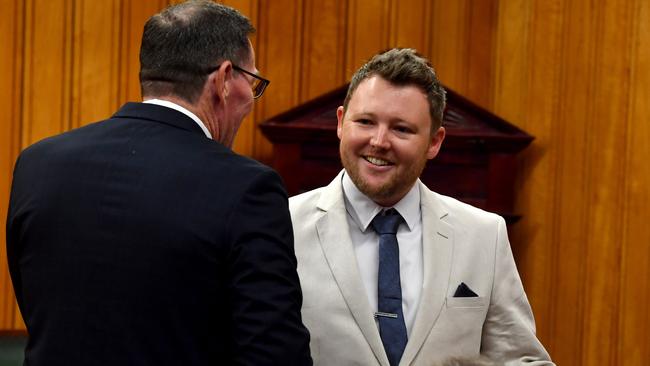
“That will be paid weekly in advance and that’s the end of it.
“Now, don’t come to us if you spend more than that, that’s not our problem.”
Andrew Robinson urged the amount be restricted further at $15,000 for each councillor and $20,000 for the mayor to reflect “austere measures” in the upcoming budget.
“Cost of living was a particular issue at prepolling with a number of residents making it quite clear that they weren’t happy with rate rises and the like,” he said.
“One main thing for me is the pub test, and the question of ‘would an amount of $15,000 be considered reasonable by a normal person’, and my indications from speaking to the people at the pub is $15,000 would be deemed to be quite reasonable.
“In the coming months I’m sure we’d be looking at austere measures in order to try and make the council as frugal but as efficient as possible, but again, this is one possible way we can adhere there.”
Mr Thompson questioned whether the amount would be realistic.
“We are going to be out there more, we are going to be in their faces,” he said.
“I understand we want to reduce costs where possible, I don’t think that’s the way forward.”
Ms Batkovic observed the reduced amounts were not enough to cover vehicle maintenance and fuel to represent their divisions and that there was a disparity in sizes with divisions 1 and 10 particularly being more expensive to represent.
Division 10 councillor Brady Ellis said he would “chew through that very comfortably” but he was prepared to shoulder the additional costs if needed.
“I’m not here to get rich,” he said.
4. Battle for LGAQ representation
Although councillors accepted most of the 40 panel and advisory committee roles without contest, Cr Rehbein and Cr Greaney competed to be representative of the Local Government Association of Queensland for the area representing the greater Townsville, Hinchinbrook and Burdekin areas.
Their nominations split the chamber which voted four-seven, but Cr Rehbein renewed his role and had the mayoral support.
Mr Rehbein said he had “great passion” supporting the region and bringing motions of significance to LGAQ’s annual conference across two terms, such as stances on slum lords, on development applications, and a crackdown on crimes posted on social media.
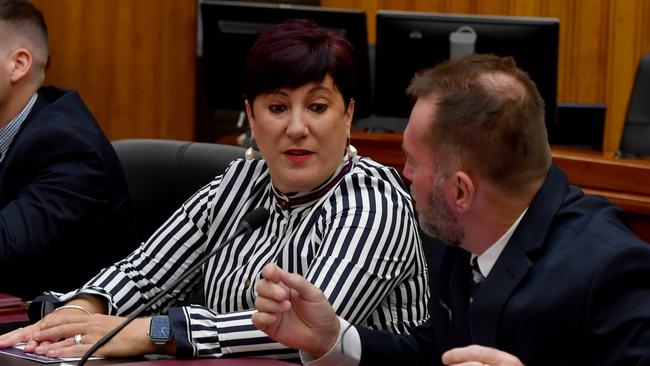
Cr Greaney said she wanted the role because it would support women’s representation within local government.
“I’m agreeing with all the views you’ve expressed with giving councillors the opportunity to take on new and greater roles and responsibilities, particularly given I have previous experience in local government policy,” she said to the mayor.
Mr Thompson continued the mayoral position on the board within Townsville Enterprise Limited, Overlander's Way Tourism Group, and the Townsville Local Disaster Management Group.
5. CEO’s emotional farewell
It was supposed to be Dr Ralston’s last council meeting before he left the Townsville City Council, but because of the heatedness behind choosing his replacement, he may well sit in for one more special council meeting.
But Dr Ralston gave a farewell speech in which he emphasised his past challenges, the council’s dedication to safety, its award-winning standards in reporting of its bureaucracy, and the positive dynamics with high level staff.
He did not speak on the reasons for his resignation.
Dr Ralston also drew attention to the upcoming retirement of legal counsel executive Tony Bligh after 25 years working within the council.
While Mr Bligh may not make the headlines, which is usually the case for council executive team members, he had a vital part to play within the chamber.
In just that meeting alone, Mr Bligh was advising councillors with background information while diplomatically handling procedure as councillors at times raised questions about financial figures or the choosing of the next chief executive.
Dr Ralston praised his “fine legal mind” and his dedication serving four mayors, 40 councillors, and eight chief executive officers.
Originally published as Significant moments within the Townsville City Council chamber



